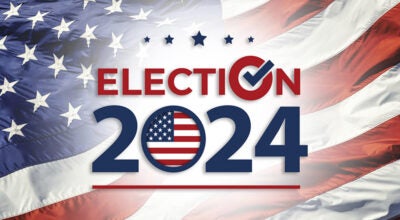Dems sweeten health bill, set showdown Sunday vote
Published 10:28 pm Thursday, March 18, 2010
WASHINGTON (AP) — Historic health care change in the balance, Democrats plowed fresh billions into insurance subsidies for consumers on Thursday and added a $250 rebate for seniors facing high prescription drugs, last-minute sweeteners to sweeping $940 billion legislation headed for a climactic weekend vote.
President Barack Obama scuttled an Asian trip in favor of last-minute lobbying at the White House on his signature issue, playing host to a procession of wavering Democrats seeking favors.
“It will make history and we will make progress by passing this legislation,” predicted House Speaker Nancy Pelosi as Democrats unveiled final alterations to a bill — 16 tumultuous months in the making — meant to expand health care to 32 million uninsured, bar the insurance industry from denying coverage on the basis of pre-existing medical conditions, and trim federal deficits by an estimated $138 billion over the next decade.
The health care portions of the bill would affect nearly every American and remake one-sixth of the national economy.
Beginning in 2014, most Americans would be required for the first time to purchase insurance, and face penalties if they refused. Millions of families with incomes up to $88,000 a year would receive government help to defray their costs. Large businesses would face fines if they did not offer good-quality coverage to their workers.
As Democrats trumpeted their bill, particularly its potential impact on the deficit, Republicans attacked it relentlessly as a government takeover of the health care industry financed by ever higher Medicare cuts and tax increases, including a new Medicare payroll tax on upper income wage earners.
“The American people are saying, ‘Stop’ and they’re screaming at the top of their lungs,” said House GOP Leader John Boehner of Ohio. Citing reports that Obama had told members of the Hispanic caucus that his presidency depends on the bill’s passage, he added, “I’m sorry, Mr. President, this isn’t about you.”
It was, though, at least in part, and has been ever since last summer, when Sen. Jim DeMint, R-S.C., predicted the bill’s defeat would mark Obama’s Waterloo.
Democrats set a Sunday showdown in the House, and while Pelosi and others expressed confidence about the outcome, Obama’s decision to put off a scheduled Asian trip until later in the year was a confession that the votes were not yet secured.
Support for the legislation appeared to be growing.
Rep. Bart Gordon of Tennessee, a moderate Democrat who is retiring at the end of the year, announced he would vote in favor of the bill after opposing an earlier version. He did so as Democratic leaders included in their revisions a provision worth an estimated $99 million over two years in higher Medicaid payments to Tennessee hospitals that treat large numbers of uninsured.
Rep. Betsy Markey, a first-termer from Colorado, quickly followed, citing improved deficit cuts.
That made three conversions in recent days, following liberal Rep. Dennis Kucinich of Ohio, with the White House and congressional leaders in search of more.
In Washington’s time-honored tradition, the conversations with the president ranged widely. Rep. Luis Gutierrez of Illinois said he agreed to vote for the health care overhaul on the understanding that Obama and congressional Democrats would begin attempts quickly to pass comprehensive immigration legislation. Within hours, Senate Democrats unveiled a bill, and the president praised it in a written statement.
Obama and Democratic leaders focused their lobbying on two groups of Democrats, 37 who voted against an earlier bill in the House and 40 who voted for it only after first making sure it would include strict abortion limits that now have been modified.
After weeks of secrecy-shrouded meetings, Democrats unveiled 153 pages of last-minute changes that included another of Obama’s top priorities. Federally guaranteed student loans would now be made only by the government, ending a role for banks and other for-profit lenders who charge fees.
The savings, an estimated $60 billion over a decade, would increase the maximum Pell grants for needy college students as well as support for programs such as aid to historically black colleges, a priority of the Congressional Black Caucus.
As for health care, the additions fell generally into three categories.
— To address concerns of House Democrats, subsidies were raised by an estimated $25 billion over a decade for consumers who would face a first-ever requirement to purchase coverage.
— To ease concerns among governors, about $8 billion was added for 11 states and the District of Columbia, which already provide the level of Medicaid coverage that is required under the bill.
— Seniors who experience a gap in coverage in the Medicare prescription drug program would receive a $250 rebate this year — an election-year bragging point for Democrats as they look toward the fall campaign with control of Congress at stake.
Beginning in 2011, pharmaceutical industry discounts would cover 50 percent of the costs of drugs that seniors buy once they enter the gap in coverage. That share would rise to 75 percent over a decade. That would bring it into line with the program’s basic benefit, in which Medicare recipients generally pay 25 percent of their costs and the program picks up the rest.
To help pay the cost of increased benefits, the legislation would increase Medicare payroll tax 0.9 percentage point, to 2.35 percent, on wages above $200,000 for individuals and $250,000 for married couples filing jointly. In a change sought by the White House, beginning in 2013, a new 3.8 percent tax would be imposed on interest, dividends, capital gains and other investment income for individuals making more $200,000 and couples making more than $250,000.
The measure also erased a Senate-passed provision to give Nebraska a greater share of Medicaid funds than other states would receive under an expansion mandated under the bill. Republicans had made that politically radioactive, calling it a Cornhusker Kickback, and it was one of the reasons most often cited by in recent weeks by rank-and-file House Democrats unhappy they were being asked to approve a Senate-passed bill they disdained.
In a gesture to public sentiment as well as the sensitivities of moderate members of the rank and file, Democrats and Obama sought to focus public attention on the deficit reduction they said would result from the revised legislation. The Congressional Budget office put the 10-year savings at $138 billion, but Democratic leaders said that would be dwarfed by a projected $1.2 trillion in the following decade.
But Republicans countered quickly, pointing out that the revisions raised the levels of planned Medicare cuts and would mean higher taxes, as well.
“The Senate bill that Speaker Pelosi said Democrats are so afraid to take a vote on cut Medicare by $465 billion. This latest bill increases those cuts by about $60 billion more,” said the Senate Republican leader, Sen. Mitch McConnell of Kentucky.
“How about taxes? The Senate bill that Democrats are so afraid to take a vote on raises taxes by $494 billion. This bill increases those tax hikes by at least $150 billion.”
The package of changes released during the day involves the second of two bills that Obama hopes lawmakers will send him in coming days.
The first, at more than 2,700 pages, cleared the Senate late last year but went no further because House Democrats demanded significant changes — the very types of revisions now incorporated into the fix-it measure.
Sparking outrage by Republicans, Pelosi and other House Democratic leaders are likely to try and pass both bills with a single vote in hopes of avoiding a stand-alone roll call on the unpopular Senate measure.
Passage in the House would send the first bill to the president for his signature, and the other measure to the Senate for a final vote expected by the end of next week. Over GOP objections, it will take place under rules that bar a filibuster, meaning Democrats will not be required to post a 60-vote majority.
Republicans said during the day they would challenge select provisions of the measure by claiming they were not eligible to be included in a measure considered under non-filibuster rules.




